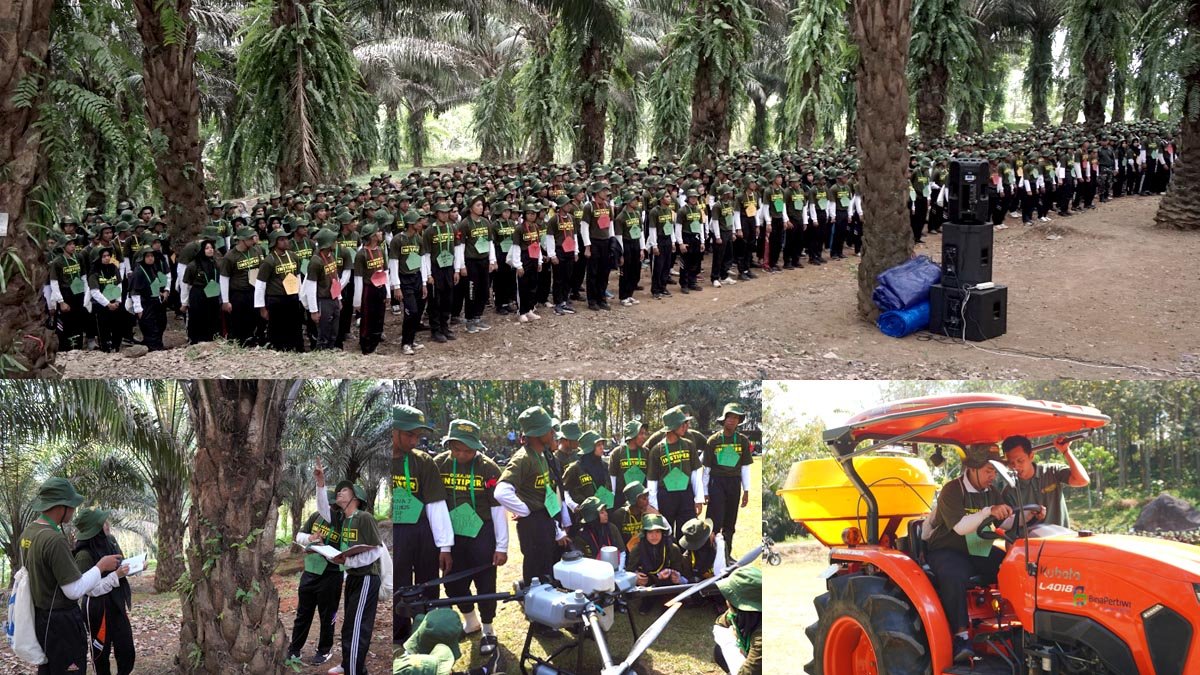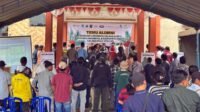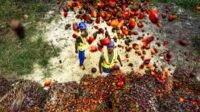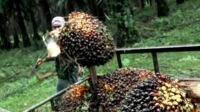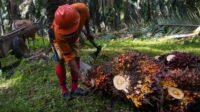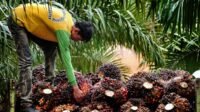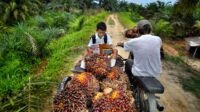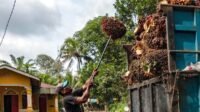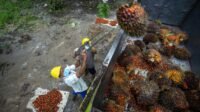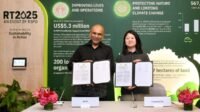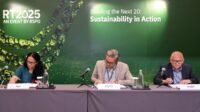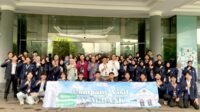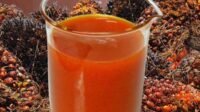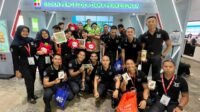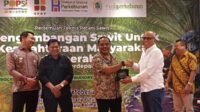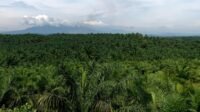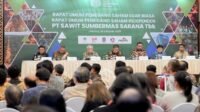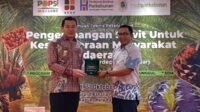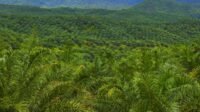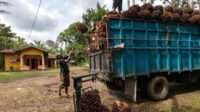PALMOILMAGAZINE, YOGYAKARTA – For most universities, new student orientation typically focuses on introducing campus facilities, academic systems, and helping students transition from high school to university life. At INSTIPER Yogyakarta, however, orientation goes beyond the classroom. New students take part in Kenal Kebun (Introduction to the Plantation), an immersive experience designed to give them a real-world preview of what they will study and the professional challenges they may face after graduation.
The program, known as OKKABUN (Orientasi Kenal Kampus dan Kenal Kebun), is a mandatory activity for all first-year students. This year, 840 freshmen from the 2025/2026 academic year participated in the program, which ran from August 29 to September 8, 2025.
The orientation began with health checks to ensure the well-being of participants, followed by a discipline-training module aimed at instilling habits crucial for both academic and professional success. After an introduction to the campus environment and academic system at INSTIPER, students moved to SEAT Ungaran—INSTIPER’s educational plantation—for hands-on learning.
Also Read: EUDR Threatens Exports? Indonesia’s Agriculture Ministry Prepares New Strategy through SASCI Plus
According to Dr. Adi Ruswanto, Vice Rector III for Student Affairs and Chair of the OKKABUN Committee, the SEAT plantation provides a living laboratory of various commodities. “Students are introduced to plantation crops such as oil palm, coffee, rubber, cocoa, and tea, as well as forestry commodities like teak, jabon, and sengon. They also get to know horticultural crops. Many of them may never have seen these plants in person. Through OKKABUN, students gain kinesthetic learning experiences—seeing the trees, learning their cultivation methods, and understanding what products are harvested from them. This makes them better prepared to engage in deeper academic discussions during lectures,” he said in a written statement received by Palmoilmagazine.com on Saturday (13/9).
Beyond crops, OKKABUN also introduces students to technology and mechanization in agriculture and forestry. At this year’s technology showcase, students learned about crane grabbers and transporters used for evacuating oil palm fresh fruit bunches. They also saw demonstrations of a smart truck prototype—developed by INSTIPER lecturers with funding from the Palm Oil Fund (BPDP)—as well as drones for plantation monitoring, evaluation, fertilization, and pest control.
Betti Yuniasih, M.Sc., Head of Public Relations at INSTIPER, noted that these activities encourage students to start thinking critically about efficiency and productivity.
The program also emphasizes teamwork. Students were grouped across faculties and study programs to complete collaborative tasks, fostering cross-disciplinary interaction and problem-solving skills. To further build resilience and independence, freshmen camped in tents they had to set up themselves. “Everyone has to contribute if they want shelter to rest under. This teaches them the value of hard work and cooperation,” she said.
With participants coming from 26 provinces across Indonesia, INSTIPER’s new student cohort represents Generation Z—a generation shaped by convenience and strong parental support. OKKABUN challenges them to step out of their comfort zones, become more independent, and prepare for the realities of university and professional life.
By blending academic orientation, field exposure, teamwork, and real-world challenges, INSTIPER’s OKKABUN program equips students not only with knowledge but also with critical thinking, discipline, teamwork, and problem-solving skills. These are essential foundations for their future roles in the plantation and forestry industries. (P3)

